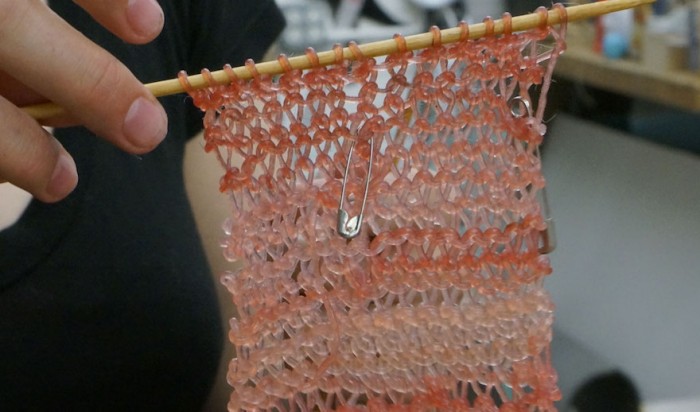
BioEsters is an innovative bio-based material invented by students at the New York City Fashion Institute of Technology. The filament is made from an organic compound called alginate, which is extracted from a particular kind of brown seaweed that grows in cold waters. With this material, the team hope to further development in sustainable textiles as a means of addressing textile production’s harmful impact on the environment.
While alginate has been used in a number of speciality fields such as molecular gastronomy and medical treatment, the substance has not been as accessible to fashion designers because it is produced in sheets rather than in a workable yarn formation.
To make the alginate suit their purposes, the students use a large syringe to squeeze out the substance in thin spaghetti-like pieces into a calcium chloride solution. The alginate reacts to the chloride and sets in its form the moment it comes into contact with the liquid. The bio-based filament looks like yarn, and can be woven by hand or machine to form a new sustainable material for designers.
While the students have been experimenting with other compounds, they have found that the properties of their alginate can be altered to make the flexible material softer and more transparent.
The students believe that bio-based materials like theirs could be an answer to creating a circular and sustainable economy for the fashion industry. Not only are they extracted from low-energy-consuming organisms but they are also are biodegradable – important factors when considering that apparel production is the second largest polluter in the world, not far behind number one, the oil industry.






